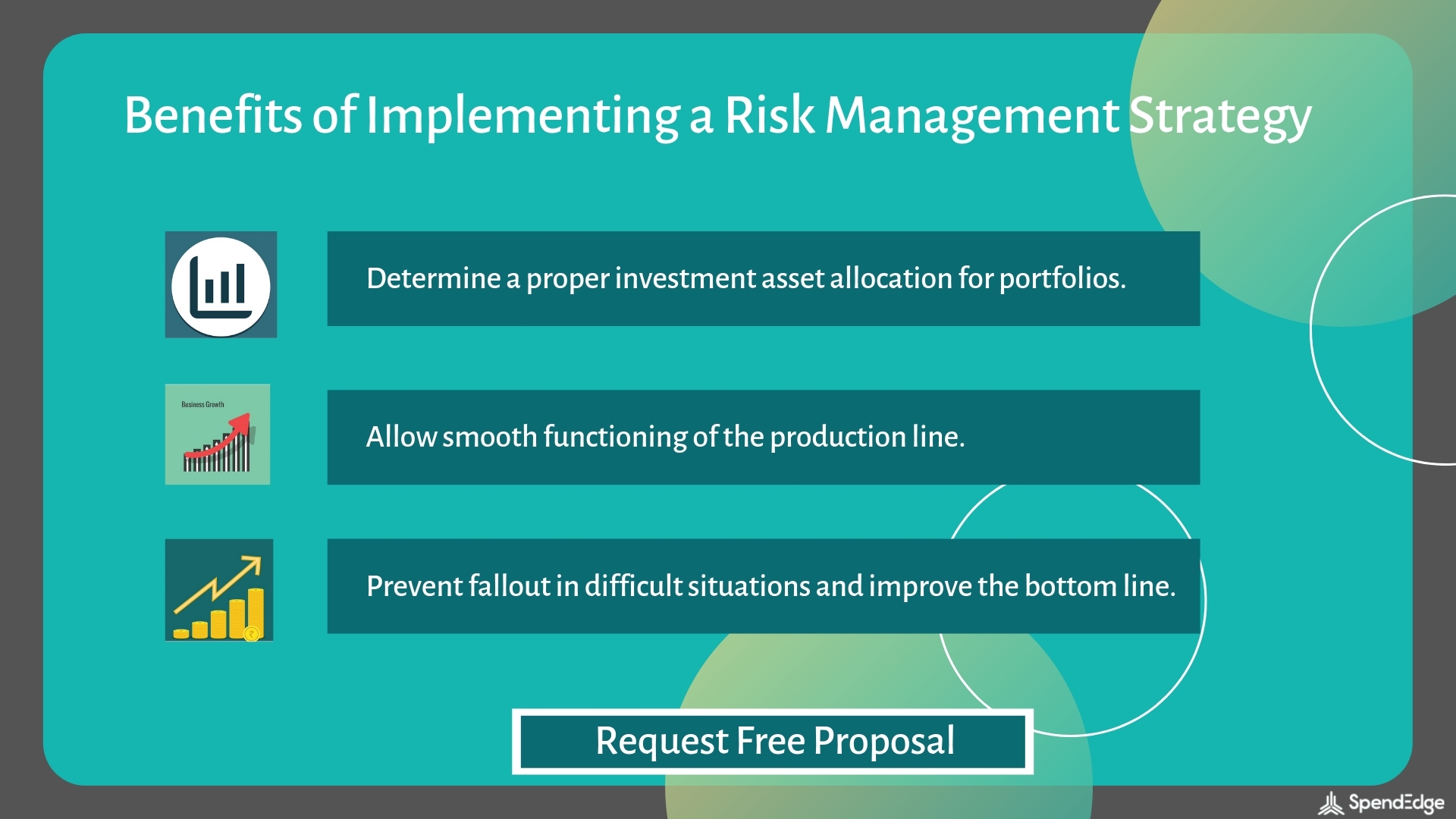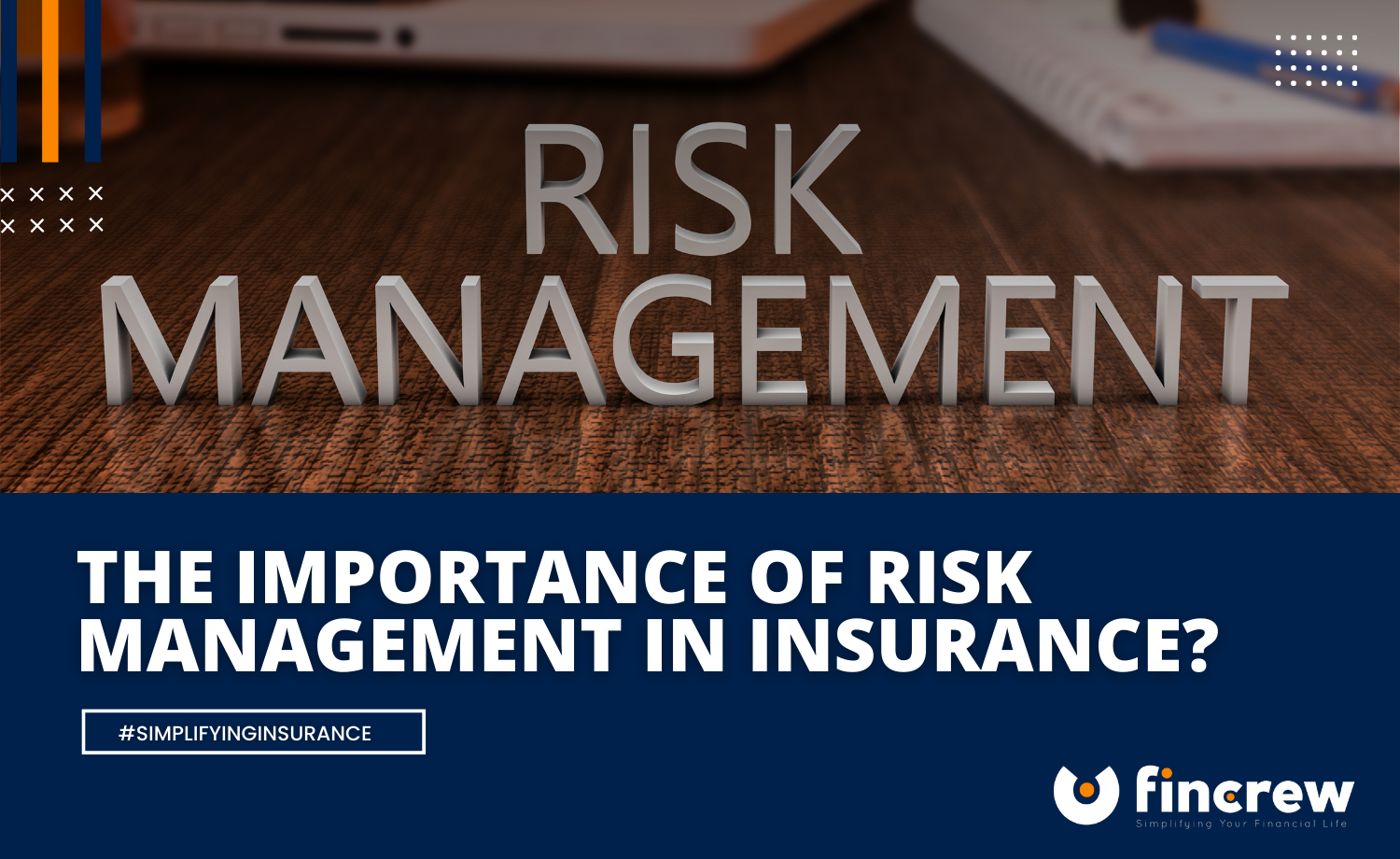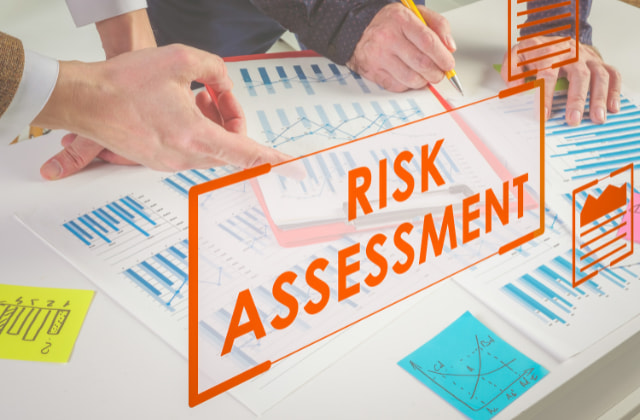The Extensive Importance of Risk Management in Worldwide Supply Chains
The Extensive Importance of Risk Management in Worldwide Supply Chains
Blog Article
Exploring the Relevance of Risk Management for Effective Decision-Making Approaches
In the complex world of organization, Risk Management emerges as a crucial factor in the decision-making process. The capability to identify prospective risks and chances, and plan accordingly, can lead to the distinction in between success and failing.
Understanding the Idea of Risk Management
Risk Management, a vital element in decision-making, is typically misunderstood or oversimplified. Risk Management includes organized and self-displined methods, making use of information and informative analyses. From monetary unpredictabilities, lawful responsibilities, calculated Management errors, to crashes and natural catastrophes, it addresses different threats - importance of risk management.
The Duty of Risk Management in Decision-Making Processes
In the world of strategic preparation and organization procedures, Risk Management plays an essential role in decision-making processes. It helps in identifying possible risks and uncertainties that can influence the accomplishment of company purposes. By mapping these dangers, business can develop strategies to alleviate their effect, ensuring service connection and stability. Risk Management therefore becomes a crucial tool in decision-making, assisting leaders to make informed options based upon an extensive understanding of the risks included. It encourages an aggressive technique, making it possible for companies to prepare and anticipate for feasible future scenarios. This dramatically lowers the probability of unfavorable repercussions, promoting a lot more effective and effective decision-making techniques. Risk Management serves as an essential element in the decision-making procedures of any type of organization.

Just How Risk Management Boosts Strategic Preparation
In the context of calculated planning, Risk Management plays a crucial duty. Initiating with the identification of potential risks, it further includes the application of Risk mitigation steps. The function of Risk Management is vibrant however not fixed, as it requires constant surveillance and adjusting of strategies.
Recognizing Potential Dangers

Applying Risk Mitigation
Risk reduction strategies can vary from Risk avoidance, Risk transfer, to risk reduction. Each approach must be customized to the certain Risk, considering its possible effect and the organization's Risk resistance. Reliable Risk mitigation calls for a deep understanding of the Risk landscape and the possible influence of each Risk.
Monitoring and Changing Approaches
Though Risk reduction is a vital action in tactical planning, continual surveillance and modification of these techniques is equally vital. This continuous procedure allows organizations to identify new threats and reassess existing ones, making certain the carried out strategies continue to be reliable in the ever-changing company environment. It additionally offers a chance to assess the success of the Risk Management actions, permitting changes to be made where necessary, more enhancing tactical planning. Effective surveillance and modification call for the usage of analytics and vital efficiency signs (KPIs) to gauge effectiveness. These devices offer important data-driven understandings that can notify calculated decision-making. Surveillance and readjusting Risk Management approaches is a critical component for improving a company's durability and strategic preparation.
Case Studies: Successful Risk Management and Decision-Making
Worldwide of company and financing, successful Risk Management and decision-making commonly work as the columns of prosperous business. One such entity is a additional resources multinational oil business that minimized economic loss by hedging against changing oil rates. In one more circumstances, a tech startup grew by identifying and approving high-risk, high-reward techniques in an look here unstable market. An international financial institution, encountered with regulative uncertainties, effectively browsed the scenario with proactive Risk assessment and dynamic decision-making. These situations highlight the worth of sharp Risk Management in decision-making processes. It is not the absence of Risk, but the Management of it, that often separates effective business from not successful ones. These situations highlight the critical function of Risk Management in strategic decision-making. importance of risk management.
Devices and Methods for Effective Risk Management
These tools, such as Risk registers and warm maps, aid in determining and assessing possible threats. Risk reaction strategies, a crucial part of Risk Management, entail approving, staying clear of, moving, or mitigating threats. With these techniques and devices, decision-makers can browse the complicated landscape of Risk Management, thus assisting in informed and efficient decision-making.
Future Trends in Risk Management and Decision-Making Methods
As we explore the vast landscape of Risk Management, it ends up being noticeable that the devices and methods used today will remain to evolve. Future fads aim in the direction of a boosted reliance on technology, with artificial knowledge and machine learning playing considerable functions. These technologies will certainly allow organizations to forecast possible risks with higher precision and make even more enlightened choices. Additionally, there will be a growing focus on resilience, not just in managing threats but likewise in getting better from unfavorable scenarios. The principle of Risk culture, where every member of a company is aware and entailed in Risk Management, will certainly get a lot more prestige. These trends herald a more comprehensive and aggressive technique towards Risk Management and decision-making. resource
Verdict

Risk Management therefore comes to be an essential device in decision-making, helping leaders to make enlightened choices based on a comprehensive understanding of the risks involved. Risk mitigation methods can range from Risk avoidance, Risk transfer, to take the chance of reduction (importance of risk management). Effective Risk mitigation needs a deep understanding of the Risk landscape and the potential effect of each Risk. Risk reaction approaches, a key element of Risk Management, entail accepting, preventing, transferring, or mitigating dangers. The concept of Risk society, where every participant of an organization is mindful and included in Risk Management, will certainly acquire much more importance
Report this page